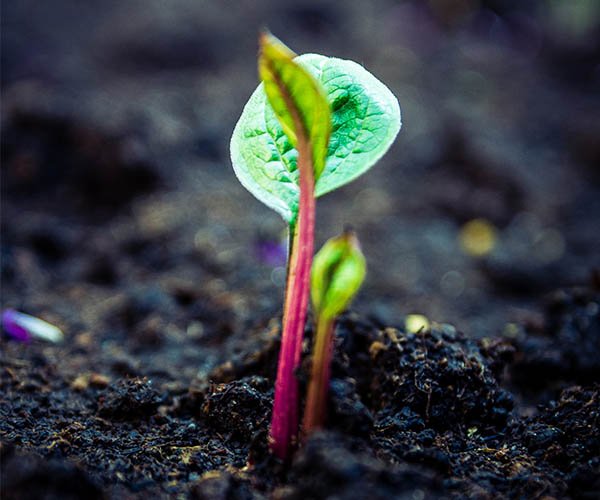Biostimulants can improve soil conditions. Soil is not only the foundation of agriculture, but also the guarantee of food security. For agricultural production, the health of the soil is a very important factor. Healthy soil makes crops more tolerant to abiotic stresses (such as drought or extreme weather events), and it is necessary to achieve more crop yields, higher quality provides a strong guarantee.
Although soil is the basis of food production. But soil is largely one of the least valued resources on earth. Related studies have shown that human factors such as poor management practices, pollution, climate change and urbanization have led to the depletion of 60-70% of all soil in Europe.
Globally, nearly 2 billion hectares of land show varying degrees of soil degradation, including more than half of the agricultural land. More than 12 million hectares of land are lost to soil degradation each year. The world loses 24 billion tons of fertile soil every year, with major adverse effects on food production and economic activity. According to reports, about 40% of China’s arable land is under the threat of degradation. If this continues without action, according to estimates by the FAO, 90% of the world’s soils will be degraded by 2050. It will seriously threaten global climate and food security. Therefore, we must act now to protect our soil and help it stay alive so that our agricultural production can be healthy and sustainable.

What are the soil problems?
Soil compaction:
What we call the land is getting harder and harder. Soil compaction will affect the normal growth of crop roots, resulting in difficulty in absorbing water and fertilizer, and poor crop growth.
Soil Acidification:
A normal neutral soil pH is around 7, but many areas have a soil pH below 5. After the soil is acidified, the population of harmful microorganisms in the soil will increase, which will increase the incidence of crop root diseases. After the microbial environment is destroyed, the aggregate structure of soil is also destroyed accordingly. And the nutrient absorption rate will decrease.
Soil Salinization:
Green frost, red frost, and hoarfrost are the intuitive manifestations of soil salinization. Soil salinization will cause physiological toxicity of salt ions to crops, lead to physiological drought of crops, and it can affect the absorption of nutrients by crops.
Soil Pollution:
After the soil ecological balance is destroyed, a large number of soil beneficial microorganisms will die, soil physical, chemical and biological properties will deteriorate, soil activity will decrease, and soil functions will deteriorate.
How do we restore soil?
Soil Fertilizer
The ability of soil to provide plants with suitable physical, chemical and biological conditions for growth and development. Fertile soils have a higher capacity to retain nutrients and make them more readily available to our crops.
pH and Salinity
Soils with high salinity and high pH tend to negatively affect nutrient supply and microbes associated with core processes. To meet this challenge, growers need to select the best crops and varieties. And develop crop nutrition programs adapted to the conditions.
Boost Microbiota
The benefits of a diverse microbiome extend beyond plant nutrition, for example, improving soil water dynamics can help mitigate climate change, among others. Using natural agricultural inputs and incorporating probiotic products can help boost the development of the soil microbiome. And supports high-quality harvesting.
Improve Soil Structure
Due to texture and profile properties, soils vary widely in properties such as porosity, permeability, and gas exchange. To maintain proper soil structure, it is important to take advantage of the number and type of crop management methods while applying organic matter to improve the overall structure of the soil.
At the same time, biostimulants can improve soil conditions. Biostimulants such as humic acid, fulvic acid, and polyglutamic acid(γ-PGA) can help improve soil structure, promote the formation of soil aggregate structure. And they can enhance soil water and fertilizer retention, and enhance soil microbial activity. Improve soil, protect soil, and promote better plant growth!


